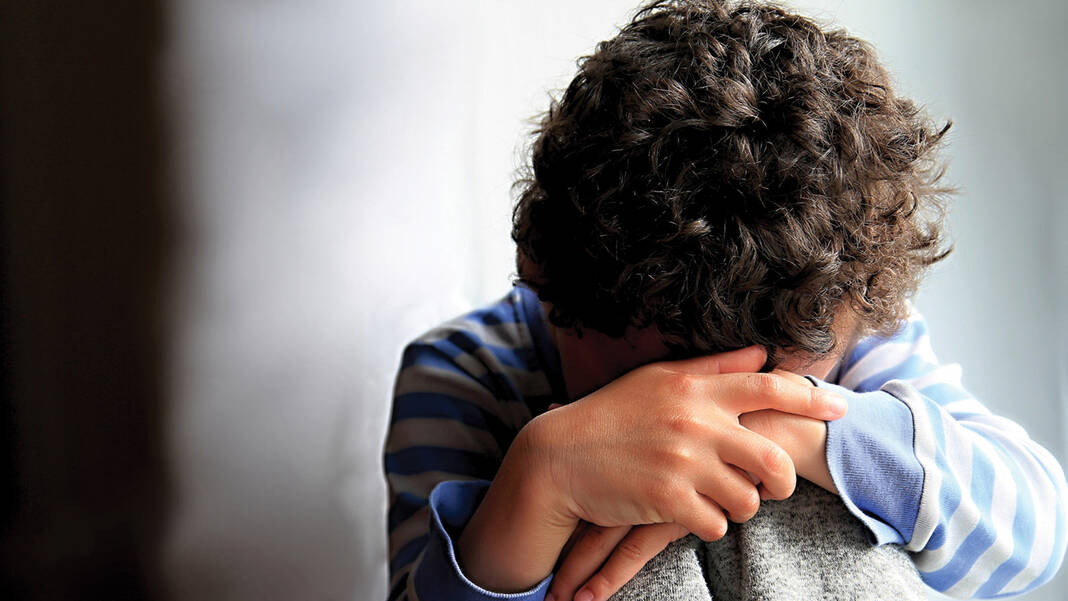|
Only have a minute? Listen instead
Getting your Trinity Audio player ready...
|

HARLINGEN — When a loving and popular Harlingen student drowned recently, the entire school district rallied behind her family and her friends and even teachers who knew her.
The death of Anllelith Moreno Solis on May 19 hit everyone hard. She was an honor roll student at Vernon Middle School, a talented athlete, and her smiling personality endeared her to many.
The nightmare raw and brittle sheared the senses of everyone who knew her, and the Harlingen school district immediately mobilized.
“We had Levi and Piper at the campus to support the students and the staff,” said Sylvia Gamboa, director of counseling for the district.
Levi and Piper are emotional support dogs which the district uses to give comfort to students experiencing anxiety or some other emotional disturbances. Animals often tune in to the emotional distresses in people, and their presence helps relieve suffering.
Animal support is one way to cope with tragedy, and mental health professionals have many coping strategies to offer those struggling.
May was Mental Health Awareness Month, and although the month is over, the specter of mental illness continues minute by minute throughout the year.
The dark abyss of depression can bleed a person of their vitality, belief, desire and passion.
It can shred relationships, derail work life, and isolate people from friends and relatives and various endeavors.
So debilitating is depression, anxiety, mania, and post-traumatic stress disorder, that awareness and acceptance and attendance to the suffering is crucial.
“Mental health has always been a vital component of a person’s health but, for various reasons, emotional needs are not seen as a priority,” said Becky Tresnicky, director of behavioral health at Valley Baptist Medical Center.
“Millions of people in the United States, one in five American adults, experience a mental health condition each year,” Tresnicky said. “Finding access to mental health care continues to be difficult due to high costs, lack of treatment facilities, outpatient and inpatient, and a lack of health insurance coverage.”
Tresnicky said depression, anxiety, suicidal behaviors and psychotic episodes, in addition to PTSD and substance abuse disorders, have a continuous presence in hospital emergency rooms every day.

She referenced now a White House report earlier this year stating that the United States is facing a mental health crisis among people of all ages.
“The COVID-19 pandemic has only made these problems worse,” read the report.
There are many possible reasons why mental health is getting worse, Tresnicky said, such as too much social media use and isolation or loneliness.
“However, other factors like family history and experiences with other health conditions can play a role too,” she said.
The Harlingen school district has seen a sharp rise in the mental health issues of its students, a local reflection of a growing societal problem.
“In an age of societal pressures and digital overload, the rise in youth mental health issues serves as an impactful reminder of the importance of nurturing emotional well-being of our students in a fast-paced world,” Gamboa said.
She and Angela Totman, student wellness specialist, had met one day last week to talk about the death of Anllelith and its effect on students and the resources available to those struggling with the loss and with any other mental health issues.
They spoke of the unsettled nature of contemporary life, real and unprecedented tragedies striking in such unreal circumstances. Those bizarre circumstances include the 9/11 attacks and the invasion of the COVID virus.
In previous times, kids targeted for bullying could leave it at school; these days the bullying can follow them into the midnight hours through smartphones and other internet devices.
It’s an invasion of sorts of toxic attacks and contradictory messages which can leave anyone overwhelmed and even exhausted, even more so for our youth.
This had all created a dark landscape of mental health stresses, so when COVID hit, conditions were already ripe for a crisis of the emotional senses as well as the physical.
“After COVID, we have seen a big increase in depression and anxiety,” Totman said. “We are still seeing a lot of the after-effects now. So, the effects of COVID have brought mental health to the forefront.”
COVID impacted youth on several fronts. Some children lived in abusive home environments and school was their only safe space. During COVID, they were confined to these abusive environments with no one to assist them. Certainly the isolation was terrifying for them.
Those who came from good homes also struggled with the isolation from friends and activities. When everyone returned to school after some time, Totman and Gamboa saw a great deal of trauma in the kids, and many still struggle with the effects of that dark time.
One important purpose of mental health awareness month is removing the stigma of the problem.
“We want to break the stigma of mental health because the average time between identification of mental health concerns and seeking treatment is 11 years,” Totman said. “That’s too long to suffer alone and not get the intervention and support that’s needed.”
As students and teachers struggle with the loss of Anllelith, the district is offering all manner of counseling and other support services throughout the summer.
For more information, call (956) 430-9520.



